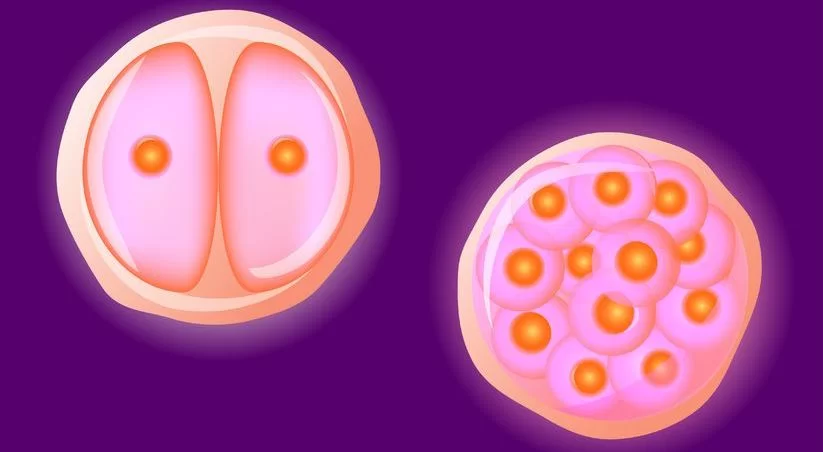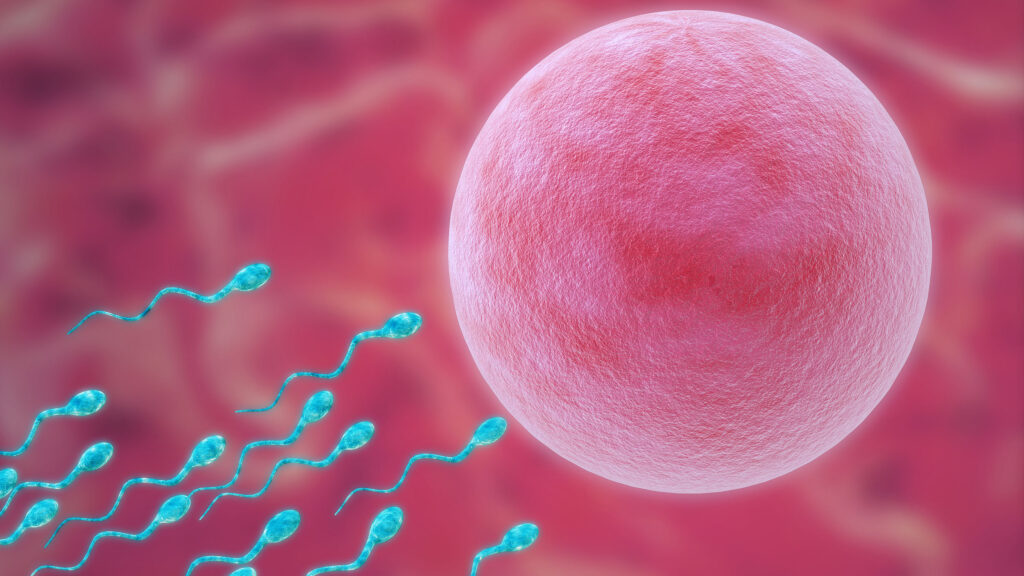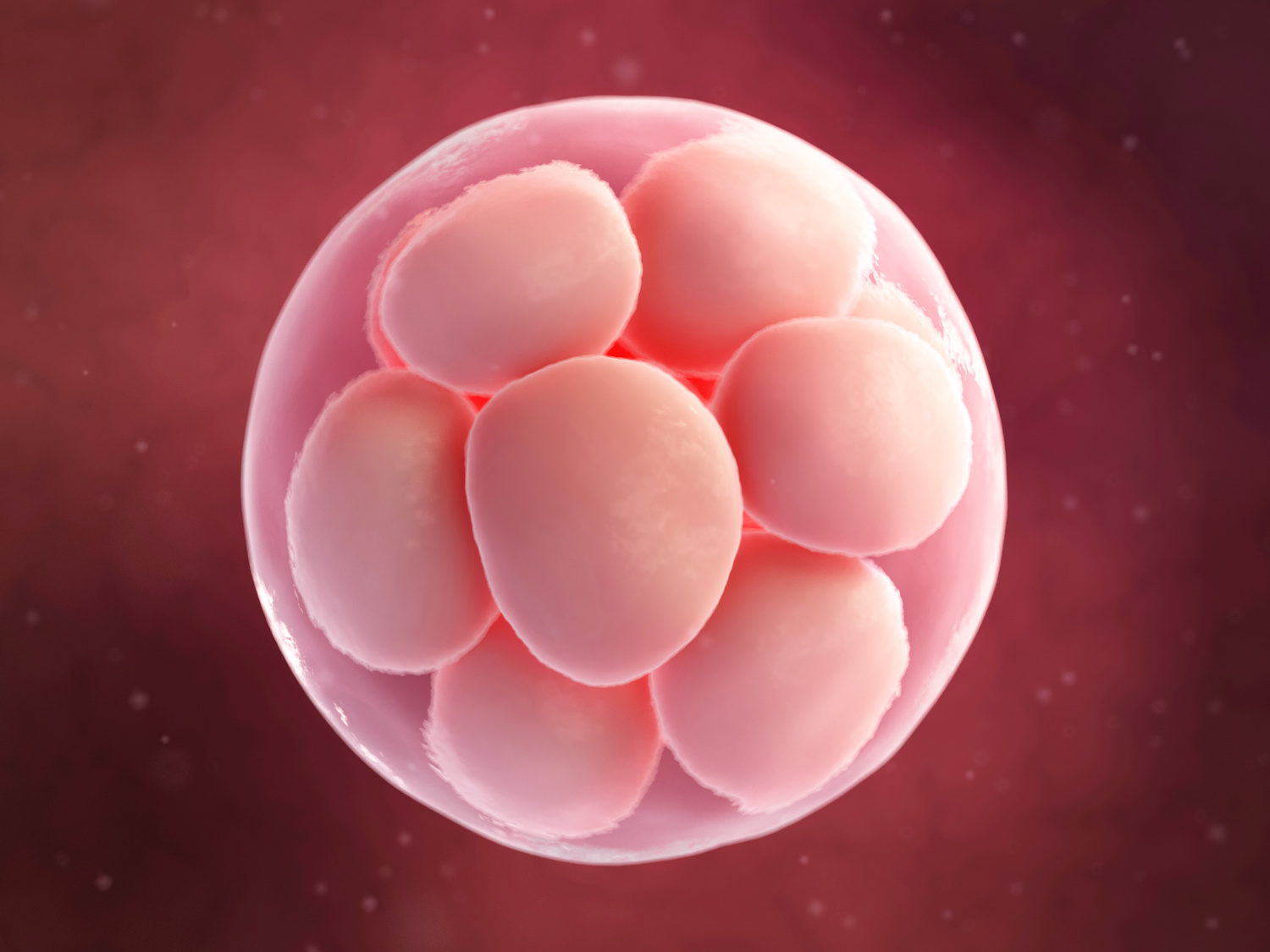When it comes to fertility and the journey toward conception, the quality of a woman’s eggs plays a pivotal role. Egg quality refers to the ability of an egg to become fertilized and subsequently develop into a healthy embryo, capable of sustaining a successful pregnancy. It’s a cornerstone of reproductive health that, unfortunately, can be influenced by a myriad of factors, not least among them being age, lifestyle choices, and environmental exposures.
Understanding the nuances of egg quality is crucial for anyone trying to conceive, as it directly impacts fertility and the chances of a healthy pregnancy. As women age, the quality and quantity of their eggs naturally decline, a reality that can pose significant challenges for conception. This biological clock is unyielding, making the awareness of egg quality and its implications more important than ever for those planning a family.
However, age is not the sole determinant of egg quality. Lifestyle factors such as diet, smoking, alcohol consumption, and exposure to environmental toxins can also play a significant role in diminishing egg quality. Moreover, certain medical conditions and genetic predispositions may further exacerbate the risk of poor egg quality, complicating the path to pregnancy.
Given these complexities, it’s essential to recognize the signs that may indicate poor egg quality. Early identification of potential issues allows for timely intervention, improving the chances of conception either naturally or through assisted reproductive technologies like in vitro fertilization (IVF).
Recommended: Does Family Planning Affect Future Pregnancy?
The purpose of this article is to shed light on the signs of poor egg quality you should be aware of, offering insight into the silent hurdles that might stand between you and a successful pregnancy. By understanding these signs, you can take proactive steps toward addressing them, armed with the knowledge and support needed to navigate the often challenging journey of fertility.
Understanding Egg Quality
Egg quality is a term that encapsulates the genetic integrity and the health of an egg (oocyte), making it a crucial factor for successful fertilization, embryo development, and ultimately, a healthy pregnancy. At the core of this concept is the egg’s chromosomal status and its capacity to support the various stages of embryo development after fertilization.
High-quality eggs have the correct number of chromosomes and the cellular machinery necessary to support the early stages of life. Conversely, eggs of poor quality may have chromosomal abnormalities or insufficient cellular components, leading to difficulties in conception or developmental problems in the embryo.
Recommended: Does Sex Affect Periods?

Factors Affecting Egg Quality
- Age: Age is the most significant factor affecting egg quality. Women are born with all the eggs they will ever have, and as they age, both the quantity and the quality of these eggs diminish. This decline accelerates around the mid-30s and becomes more pronounced in the early 40s, significantly impacting fertility.
- Lifestyle Choices: Lifestyle factors such as smoking, excessive alcohol consumption, poor nutrition, and high levels of stress can adversely affect egg quality. These factors can lead to oxidative stress, which damages the cells, including oocytes.
- Environmental Exposures: Exposure to environmental toxins such as pesticides, industrial chemicals, and pollutants can also compromise egg quality. These substances can induce oxidative stress or cause direct damage to the DNA within the eggs.
- Medical Conditions and Treatments: Certain medical conditions, including polycystic ovary syndrome (PCOS), endometriosis, and autoimmune disorders, can impact egg quality. Additionally, treatments such as chemotherapy and radiation can severely affect ovarian reserve and egg health.
- Genetic Factors: Genetic abnormalities and inherited conditions can influence egg quality, affecting the eggs’ chromosomal makeup and the likelihood of successful pregnancy.
Recommended: Can You Drink Alcohol After Taking Abortion Pill?
Why Egg Quality Matters
The quality of an egg is paramount because it affects not only the ability to conceive but also the chances of a pregnancy leading to a healthy baby. High-quality eggs have the best chance of developing into healthy embryos, implanting successfully in the uterus, and growing into healthy fetuses. On the other hand, poor egg quality is a leading cause of infertility, miscarriages, and congenital abnormalities, making it a critical aspect of reproductive health that cannot be overlooked.
Understanding the intricacies of egg quality and the factors that influence it provides a foundation for addressing fertility challenges. It emphasizes the importance of a healthy lifestyle, timely medical intervention, and, when necessary, the exploration of fertility treatments that can assist in overcoming the hurdles posed by compromised egg quality.
Recommended: Does Ovulation Make You Emotional?
As we delve deeper into the signs of poor egg quality, it’s crucial to remember the fundamental role egg health plays in the journey toward successful conception and pregnancy.

Top 6 Signs Of Poor Egg Quality
Recognizing the signs of poor egg quality is a critical step for individuals facing fertility challenges. While direct measurement of egg quality is complex and often not feasible without medical intervention, certain indicators can suggest potential issues. Here are some signs that may point to poor egg quality:
1. Difficulty in Conceiving
One of the most apparent signs of poor egg quality is difficulty in conceiving despite having regular, unprotected intercourse over a significant period, typically a year for women under 35 and six months for women over 35. When eggs lack the necessary genetic integrity or cellular components, fertilization may not occur, or the resulting embryo may not be viable.
2. History of Miscarriages
Repeated miscarriages can be a heart-wrenching clue that egg quality may be compromised. Chromosomal abnormalities in the egg often lead to embryo development issues, which can result in miscarriage. While miscarriages are relatively common and can have multiple causes, multiple unexplained miscarriages warrant an evaluation for egg quality among other factors.
3. Failed Fertility Treatments
For many undergoing assisted reproductive technologies like IVF, failure to achieve pregnancy despite the transfer of seemingly good embryos can indicate poor egg quality. During IVF, eggs are fertilized outside the body, and embryo quality is closely monitored. Poor fertilization rates, poor embryo development, or repeated failures in IVF cycles can suggest that the eggs’ intrinsic quality is lacking.
4. Poor Response to Fertility Medications
Women undergoing fertility treatments who produce a low number of eggs in response to stimulation or who retrieve a high number of eggs but with a low fertilization rate might be experiencing issues related to egg quality. Fertility medications aim to stimulate the ovaries to produce multiple eggs, and a poor response could indicate diminished ovarian reserve and possibly poor egg quality.
5. Advanced Maternal Age
Age is a significant factor in egg quality, with a notable decline in quality and quantity as a woman ages. Women over the age of 35, particularly those approaching or surpassing 40, may experience signs of poor egg quality simply due to the natural aging process of the ovaries and eggs. This age-related decline impacts the chromosomal normality of eggs, increasing the risk of infertility, miscarriage, and chromosomal abnormalities in offspring.
6. Hormonal Imbalances and Conditions
Certain conditions associated with hormonal imbalances, such as polycystic ovary syndrome (PCOS) or premature ovarian insufficiency (POI), can be indirect indicators of poor egg quality. These conditions may affect ovulation and the overall health of the eggs. Additionally, low levels of anti-Mullerian hormone (AMH) and abnormal follicle-stimulating hormone (FSH) levels can suggest a diminished ovarian reserve and potentially poor egg quality.
Recommended: Can You Be a Surrogate With Your Tubes Removed?
Understanding these signs is crucial for anyone trying to conceive, as they can guide individuals toward seeking appropriate medical advice and intervention. Early recognition and response to these indicators can improve the chances of achieving a successful pregnancy, either naturally or through assisted reproductive technologies.

How To Improve Egg Quality
While the signs of poor egg quality can be disheartening, there are strategies and lifestyle changes that can potentially improve egg health. It’s important to note that while not all factors affecting egg quality can be controlled, such as age, making certain adjustments can enhance overall fertility. Here are some ways to potentially improve egg quality:
1. Optimize Nutrition
A balanced diet rich in antioxidants can help combat oxidative stress, a factor that can damage eggs. Foods high in antioxidants, such as fruits, vegetables, nuts, and seeds, can support egg health. Additionally, incorporating foods rich in omega-3 fatty acids, like fatty fish, and ensuring adequate intake of vitamins and minerals, particularly folate, vitamin D, and zinc, can be beneficial.
2. Maintain a Healthy Weight
Being either underweight or overweight can affect hormone levels and ovulation, impacting egg quality. Achieving and maintaining a healthy weight through a balanced diet and regular exercise can improve fertility and potentially enhance egg quality.
3. Reduce Stress
Chronic stress can negatively affect fertility. Engaging in stress-reduction techniques such as yoga, meditation, or counseling can help manage stress levels, potentially improving overall reproductive health.
4. Avoid Harmful Substances
Smoking, excessive alcohol consumption, and exposure to environmental toxins can adversely affect egg quality. Eliminating or reducing exposure to these substances can help protect egg health.
5. Consider Supplements
Certain supplements may support egg quality. Coenzyme Q10 (CoQ10), DHEA (dehydroepiandrosterone), and myo-inositol have been studied for their potential to improve egg quality. However, it’s crucial to consult with a healthcare provider before starting any supplements, as they can interact with other medications and conditions.
6. Seek Medical Advice
For those with conditions like PCOS or endometriosis, managing these conditions under the guidance of a healthcare provider can improve fertility. Additionally, fertility specialists can offer treatments and interventions specifically tailored to address poor egg quality.
7. Explore Assisted Reproductive Technologies (ART)
In some cases, assisted reproductive technologies such as IVF can be tailored to optimize the chances of fertilizing higher-quality eggs. Techniques like intracytoplasmic sperm injection (ICSI) or preimplantation genetic screening (PGS) can also be considered to enhance the chances of a successful pregnancy.
Recommended: Top 5 Foods To Avoid While Taking Letrozole For Fertility
Improving egg quality is a multifaceted approach that involves lifestyle changes, dietary adjustments, and possibly medical interventions. While not all factors affecting egg quality are within one’s control, taking proactive steps to enhance overall reproductive health can make a difference in fertility outcomes. Consulting with fertility specialists can provide personalized guidance and support for individuals and couples navigating the complexities of conception and egg quality.
FAQs
Is it possible to conceive with poor egg quality?
While poor egg quality can make conceiving more challenging, it is not necessarily impossible. With the right interventions, including lifestyle changes, medical treatments, and possibly assisted reproductive technologies, many women with poor egg quality can still achieve a successful pregnancy.
Can lifestyle changes improve egg quality?
Yes, lifestyle changes such as maintaining a healthy weight, eating a balanced diet rich in antioxidants, reducing stress, avoiding smoking and excessive alcohol consumption, and minimizing exposure to environmental toxins can potentially improve egg quality.
Can assisted reproductive technologies (ART) help if I have poor egg quality?
Yes, ART such as IVF can be tailored to optimize the chances of using higher-quality eggs. Techniques like ICSI (intracytoplasmic sperm injection) or PGS (preimplantation genetic screening) can further enhance the chances of a successful pregnancy.
Is poor egg quality the only factor that affects fertility?
No, while egg quality is a significant factor in fertility, other aspects such as sperm quality, reproductive anatomy, and hormonal balances also play crucial roles. A comprehensive evaluation by a fertility specialist can help identify all contributing factors.
At what age does egg quality begin to decline?
Egg quality and quantity begin to decline gradually in the late 20s to early 30s, with a more significant decline typically starting around the age of 35. By the early 40s, the decline became much more pronounced, affecting fertility more substantially.
Can poor egg quality be the reason for unexplained infertility?
Yes, poor egg quality is one of the potential causes of unexplained infertility. Since egg quality is not easily measured, it can be an underlying issue in cases where other causes of infertility have been ruled out.
Conclusion
Recognizing the signs of poor egg quality is a crucial step toward addressing fertility challenges. While the journey to improve egg health may seem daunting, understanding that there are actionable steps you can take provides a beacon of hope. Embracing lifestyle changes, considering nutritional adjustments, and seeking professional guidance are all part of a proactive approach to enhancing fertility.
Remember, each individual’s journey is unique, and while not all challenges can be overcome, the pursuit of better health is always worthwhile. By staying informed and proactive, you can navigate your path to fertility with confidence and clarity.
